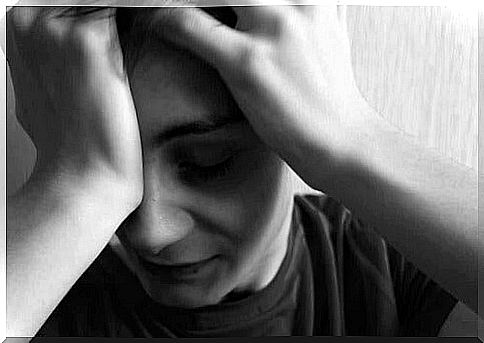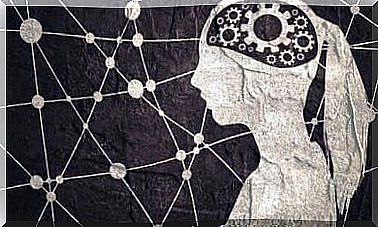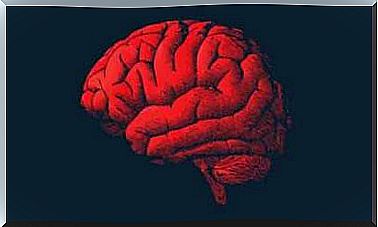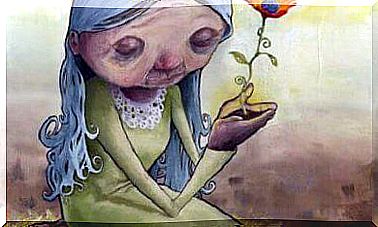Depression And Eating Disorders, Common In Times Of Crisis

Depression and eating disorders have a much closer link than you might think. Over the past year, the incidence of these conditions has increased significantly, especially among the younger population. Factors such as the health crisis caused by the pandemic, isolation, uncertainty and social problems are devastating many areas of mental health.
The prestigious British newspaper The Guardian warns that the number of children and adolescents who need urgent treatment for eating disorders such as bulimia and anorexia has quadrupled. As if that were not enough, the eating disorders area of the Royal College of Psychiatrists in London indicates that the necessary means are lacking and that in the coming months these numbers will grow further.
Behind these realities there is the social isolation experienced in recent months. However, there are other long-neglected variables that have a significant psychological impact. Teleworking in adults and economic difficulties deeply undermine our psychological balance.
Eating disorders such as anorexia and bulimia are strongly influenced by our emotions. This makes us much more vulnerable to these realities, especially in times of social crisis like the one we are experiencing.

Depression and Eating Disorders: How Are They Related?
Depression and eating disorders are highly complex multidimensional realities that often appear together. Although they have a higher incidence among women, men also suffer from it. Research from Stanford University points to an interesting aspect in this regard.
Self-critical thinking and depressive ideation determine the appearance of eating disorders such as bulimia and anorexia. In contexts of crisis and difficulty, it is normal for the cognitive and emotional universe to become even more adverse and exhausting. It is a series of phenomena that, little by little, are projected into food and the way we “relate” to it.
Mental anguish and nutrition: a direct relationship
Over the past year, many people have taken advantage of this to start the diet. However, in some cases, isolation and mental anguish have ended up taking this purpose to unhealthy extremes. Fasting, binging, and elimination behaviors were common across much of the population.
Similarly, another factor appeared – the alteration of routine. Suddenly life became more sedentary, it was no longer necessary to respect fixed hours being always at home. In addition to this, those who were used to eating out during the lockdown or still had to do it at home today and this does not always translate into better eating habits.
We eat worse and when mental anguish grips, many find their daily catharsis in food. Eating becomes an emotional escape and, in turn, a mechanism that will sooner or later create a serious physical and mental health problem. A major wave of mental disorders is expected in the coming months: it seems that depression and food-related problems will still be the most common.
Causes that link depression with eating disorders
Depression and eating disorders have always shown a relationship. However, in this moment of crisis they are two interdependent clinical realities. The causes behind this phenomenon are many:
- The social isolation we have experienced for months. Faced with the anguish experienced in this context, many people choose to diet, or to “clean up” by vomiting or using laxatives. Exercise also becomes a mechanism for maintaining control over one’s life.
- In many cases, this unhealthy relationship with food arises from the emotional ups and downs caused by the context of uncertainty.
- Greater use of videoconferencing, situations in which people feel more exposed, so they have to take care of their image. This dissatisfaction can lead many people to suffer from eating disorders.
- Even the loss of employment and financial difficulties are at the onset of depression and eating disorders.
- Last but not least, the lack of future prospects.

Periods of crisis and uncertainty worsen or reveal pre-existing mental health problems
In a historical situation like the present one, people who already suffered from mental health problems were neglected. This group is particularly vulnerable in an uncertain and adverse social context. The eating disorders attention units, for example, have not been able to respond 100% to all needs. Now the system is threatening to collapse.
Likewise, people who have already overcome depression or who have had post-traumatic stress disorder have experienced relapses. Added to this is the fact that not everyone has the opportunity to rely on professional help.
Depression, anxiety disorders, eating disorders, addictions, phobias… For those who were already vulnerable, suffering escalated to become devastating. Others, on the other hand, discovered for the first time that they had a psychopathology they had never imagined suffering from.
Be that as it may, and to conclude, it is worth pointing out once again that depression and eating disorders have increased exponentially in children and adolescents. This is a very topical fact that we cannot ignore: more means, more resources and, above all, greater awareness of this problem are needed.









